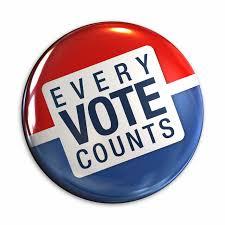
Elections in Utah are unique in that voters often get the chance to decide policy change by voting on initiatives and referendums during election years. Sometimes these changes result in State Constitutional amendments and this year is no exception. On November 4, voters will decide the fate of three proposed amendments that were passed during the 2014 Legislative Session by a two-thirds majority. Here is a quick rundown of the initiatives.
Amendment A – Utah Qualifications of Tax Commission Members
The Utah State Tax Commission oversees the administration of Utah's tax laws, collection and appeals. Currently, the four-member committee is appointed by the Governor and confirmed by the State Senate. Per the Utah Constitution, "not more than two [board members] may belong to the same political party."
Amendment A proposes to take out the requirement to have only two committee members from one party and instead require appointed members be qualified "as provided by statute."
Former Senator John Valentine (R-14) sponsored the Bill that ultimately placed Amendment A on the ballot. Valentine now acts as the head of the State Tax Commission.
Sen. Jim Dabakis (D-2) opposes Amendment A, believing it takes away the "diversity and differences of opinion" that current statute allows. "It is clearly a political decision to take the diversity away."
The official question appearing on the ballot for Amendment A is: Shall the Utah Constitution be amended to modify qualifications for members of the State Tax Commission?
Amendment B – Utah Election of Appointed Lieutenant Governor
A governor and lieutenant governor is elected during the gubernatorial election, the same election in which voters choose a president. Under the current provisions of the Utah Constitution, if a lieutenant governor is appointed in between these elections, filling a vacancy, he or she must then be formally elected by voters during the next general election. This is required for any state-elected official including Governor, Attorney General and State Auditor.
Amendment B would remove the requirement of election for an appointed lieutenant governor and instead allow him or her to run alongside an incumbent governor during the next gubernatorial election.
Rep. Jim Nielson (R-19) was the only opposing vote when this proposed amendment passed the legislative body during the 2014 session. Nielson stated that he didn't see "any drawbacks in giving the voters the chance to ratify the governor's appointment at the next regular opportunity." Nielson further pointed out that the other elected officials would not be exempt from this amendment and would still be required to be ratified by the people in a general election.
The official question appearing on the ballot for Amendment B is: Shall the Utah Constitution be amended to modify the term of office of a person appointed to fill a vacancy in the office of Lieutenant Governor?
Amendment C – Utah Appointment of Legal Counsel for Executive Officers
Currently, executive officers, including the Lieutenant Governor, State Auditor and State Treasurer, rely upon the services of the Attorney General's Office to provide legal counsel and aid during an investigation or dispute. However, many feel that these officers should be allowed to appoint independent counsel beyond the Attorney General's Office.
Amendment C would allow Executive Officers to obtain independent legal counsel, particularly in the event that using the Office of the Attorney General would be a conflict of interest. Senate President, Wayne Niederhauser, (R-9) was the only opposing vote when the measure passed the legislature, though he gave no verbal argument for his dissent.
The official question appearing on the ballot for Amendment C is: Shall the Utah Constitution be amended to authorize the Lieutenant Governor, State Auditor, and State Treasurer each to appoint legal counsel?